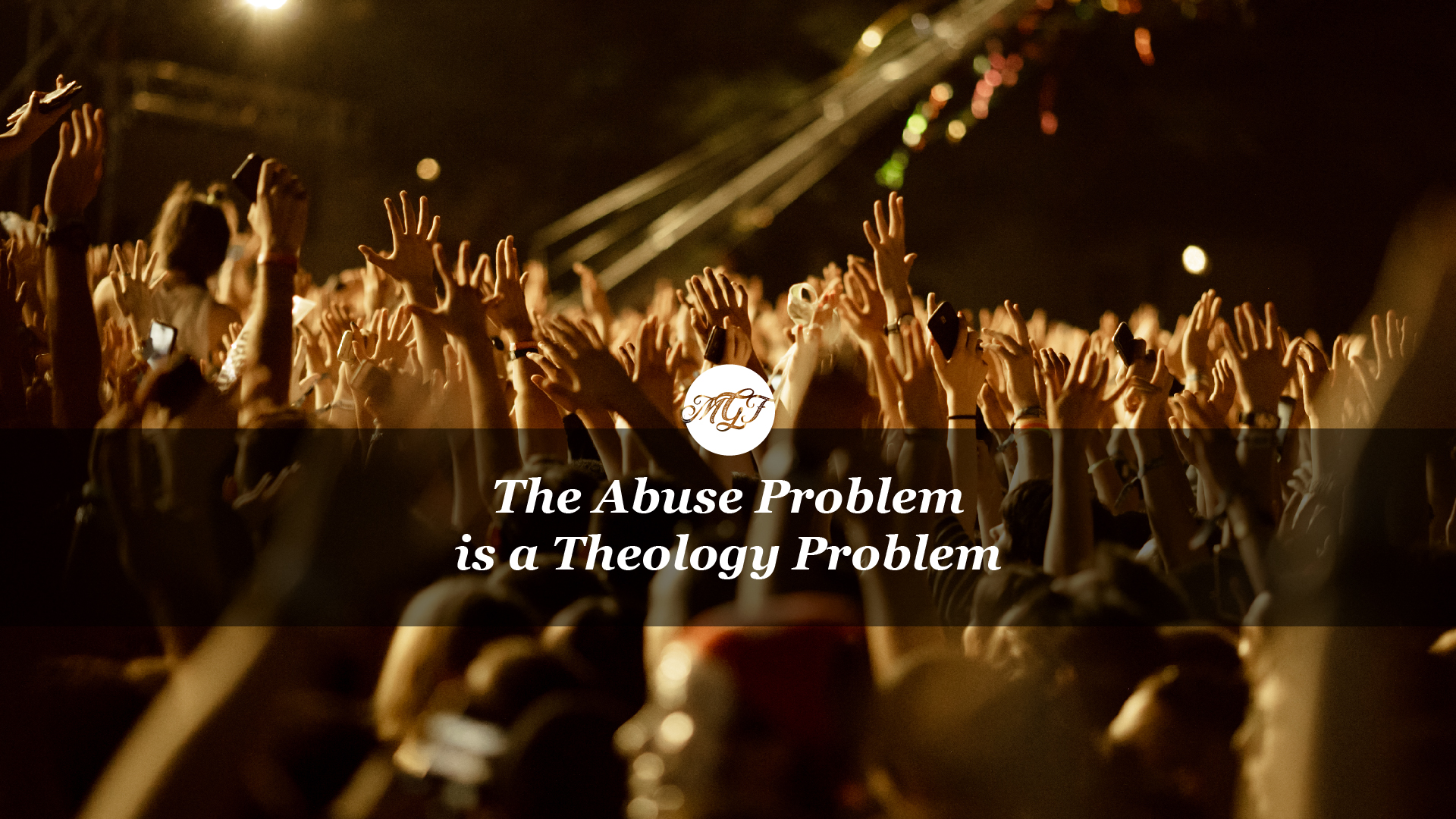When we find men and women of God who genuinely want to serve and be a part of something for the Kingdom of God, we often find a certain personality type. They’re usually humble. They’re usually meek. They’re usually submissive. And unfortunately, these qualities make them ripe for manipulation, gaslighting, and abuse. I’ve seen it too many times to count.
For a long time, I thought I had had one long, unlucky streak in my church and ministry experiences. It seemed like everywhere I went, I encountered narcissistic personalities high up in ministry, willing and eager to manipulate in the name of “evangelism” and church growth. Whether it was a tiny country church of two hundred members or a multi-national worldwide ministry, a certain personality type seems to be drawn to ministry leadership, particularly in the evangelical charismatic wing of the faith. There are extreme examples of this personality: Jesse Duplantis and Steven Furtick come to mind. So does Marcus Lamb and Joel Osteen. But it’s not only the well-known televangelists with this issue. Even among those good-ol-boy churches in the middle of nowhere, I have encountered charming, witty, charismatic figures who know how to get exactly what they want, in the name of God, of course.
How do they do it?
That’s a question I’ve had to wrestle with for a long time. Personality is certainly a factor. Narcissists come in all shapes and sizes, but they share common traits — namely knowing exactly what to say and how to use your own words against you. But it’s not just personality and narcissism that creates these kinds of church leaders.
We also have a theology problem.
Among the evangelicals, particularly those in the charismatic and Pentecostal branches, there is a pervading theology that conflates the human spirit with the voice of God. It comes in many forms, but the general gist is this: if we listen, God will speak to us and tell us exactly what to do.
The danger with this way of thinking comes into play in obvious ways from time to time. In recent months, a perfect example is of Joni Lamb “hearing from God” and declaring her family member “Pete” innocent of sexually abusing her own granddaughter. The man never went through proper investigative channels. He was declared innocent by Joni Lamb because “God told her so” and that was that. Now we’re watching the Daystar dynasty crumble before our eyes because bystanding people with two minutes to spare critical thinking over the matter realize that the man is very likely not innocent at all, and no declaration from any man or woman of God can change that.
We see this kind of theology play out in less sinister ways as well. When Joel Osteen tells you to look in the mirror and tell yourself that you’re special, it’s a form of this kind of theology: that God will speak to you through your voice, and God can’t wait to tell you what you want to hear.
On a small scale, I know a pastor personally who cheated on his wife and then left her because “God told him that she wasn’t being a good wife to him anymore.”
You see, when we conflate our own voice with the voice of God, it’s very easy to convince ourselves that obviously heretical and often evil ideas are of God, simply because we think God told us about them and because they feel good.
What Does This Have To Do With The Church’s Abuse Problem?
Maybe you’ve figured out where I’m going but walk with me for a moment anyway. When a charismatic leader with narcissistic tendencies puts him or herself in a position of spiritual power and then uses the theology of hearing the voice of God for every little detail of their lives and ministry, that leader has created the perfect recipe for abuse. He’s put himself in a position where he cannot be questioned for many reasons. One: people love him and his personality. They consider his gifts to be “anointing” and tell him so on a regular basis. Two: with that at the foundation, he then uses his “hearing the voice of God” as some sort of spiritual trump card that prevents his word from ever having error. If he said it, it’s from God. No need to ask questions.
This works for a while — as the ministry is young and growing, leaders are often humble. But money, influence, and power have a way of working their way into a man’s heart and changing him. Pretty soon anyone who challenges decisions is ousted. Anyone who asks the wrong questions disappears. And soon, that leader finds he’s surrounded by people who would never tell him no. He didn’t do that on purpose — he did it because he thinks he’s hearing directly from God, you see. And God can’t be wrong.
Then when all of that is in place, the money starts rolling in, and now we have an empire to protect, not just a name or a brand. Now we have money at stake. Now we have lifestyles to protect. And this is where the claws come out. To add insult to injury, good men and women of God make excuse after excuse for behavior they would have called abominable in any other circumstance. They turn a blind eye to the multiple mansions. They ignore that Maserati the pastor drives. They don’t bat an eye at expensive photo shoots and a never-ending supply of high-end clothing, manicures, and hairstyles. They ignore the $100,000 honeymoons and lavish jet-setting across the country, in the ministry jet, of course.
This, my friends, is how spiritual monsters are made.
Where Do We Go From Here?
There was a time when my husband and I called ourselves “sandpaper.” It seemed like every ministry and church we were a part of had systemic issues that we noticed very quickly. This kingdom men build for themselves takes root in many places and quite without anyone really noticing. We wanted to be a voice for those issues, calling darkness into the light and sanding away the rough edges of narcissism and abuse. We wanted to be sword-bearers. We were, for a time. But we looked up ten years in, bloody and wounded, exhausted and drained, to realize that we were fighting a battle that very few were fighting with us. Very few were willing to admit what they saw, and even fewer were willing to do anything about it.
And we were utterly defeated.
During that time we almost walked away from the Church completely. But we just couldn’t bring ourselves to do that. We love our faith and our God too much to walk away from the institution He envisioned for his people.
So we decided to pick our swords back up and continue the fight.
A Different Fight
The mission now is to arm the people of God with the knowledge and understanding of what we’re up against, what’s at stake, and what we must do to forge a new path forward. It won’t be easy. The path is littered with brambles and snares. At every turn, we’re faced with bad theology that sounds right. At every corner, there’s a monster waiting to devour in the name of God. But people of God, if we do not fight, what will we have to say when we stand before God? What will be our answer when he asks us what we did for the least of these? Did we fight for those who cannot fight for themselves? Did we give a voice to those who cannot speak for themselves? Did we protect the innocent? Did we do everything within our power to hand our children a better Church than the one we were handed?
I certainly only want to stand before God and say, “I truly did everything I knew to do, Father.”














